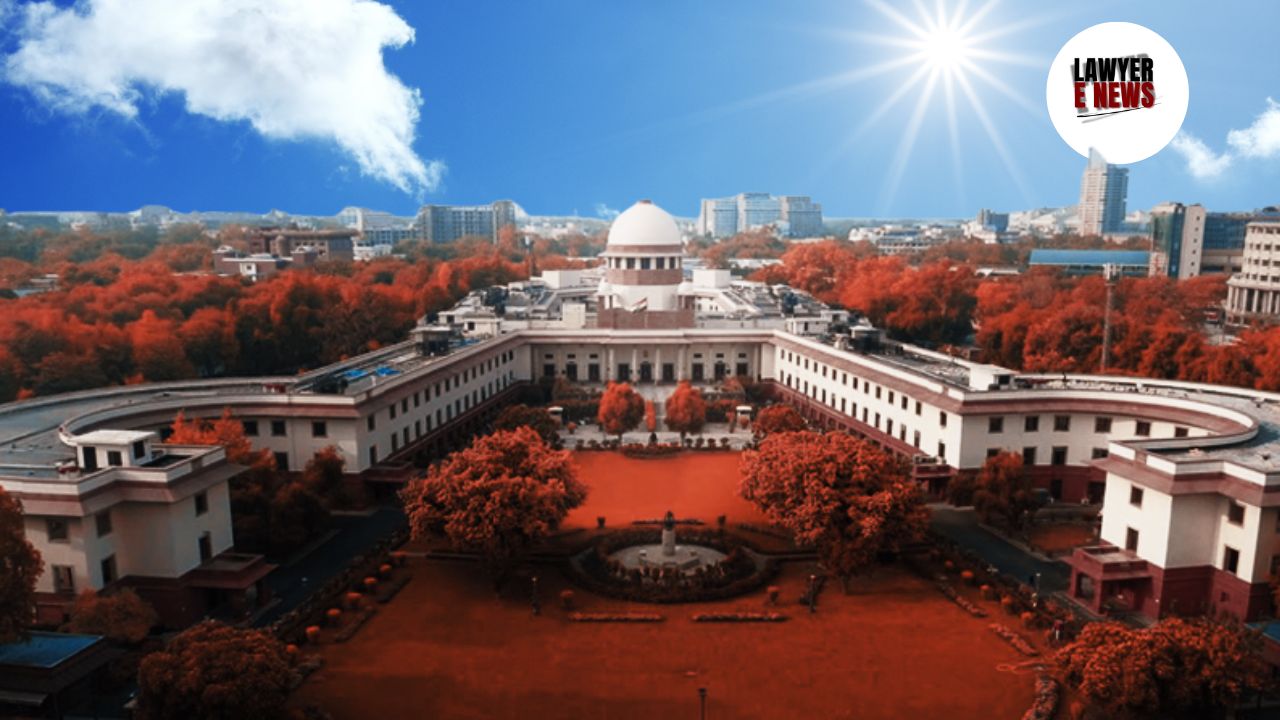-
by Admin
15 February 2026 5:35 AM



Juvenility Claim Filed After Final Conviction, Supreme Court of India delivered a key ruling in a recent judgement , granting acquittal to Brijnandan @ Brajesh Sharma (Respondent No. 2), after determining that he was a juvenile at the time of the offense, which occurred on January 17, 2002. The Court set aside his conviction, which had earlier been reinstated by the apex court following his acquittal by the Madhya Pradesh High Court.
In this case, the applicant, Brijnandan Sharma, filed a Miscellaneous Application claiming juvenility after the Supreme Court had already convicted him in March 2022. Sharma, who was convicted for the offense of murder under Section 302 IPC, contended that he was only 17 years and 3 months old at the time of the crime. His plea was based on the Juvenile Justice (Care and Protection of Children) Act, 2015, which allows a claim of juvenility to be raised at any stage of the judicial process, including after conviction.
The case dates back to a January 17, 2002 incident in which Sharma and others were accused of murder. Initially, the trial court convicted the respondents, including Sharma, in 2006, but the Madhya Pradesh High Court set aside the conviction in 2018. The State of Madhya Pradesh appealed to the Supreme Court, which reinstated the conviction in March 2022, directing Sharma to undergo his remaining sentence.
Sharma subsequently filed an application claiming that he was a juvenile at the time of the offense, submitting school records and other documents to support his claim. His date of birth was recorded as October 4, 1984, which made him 17 years and 3 months old when the offense took place, thus entitling him to the protections offered under the Juvenile Justice Act.
The core issue was whether Sharma could benefit from the Juvenile Justice Act, even after a final conviction. The Court examined:
Section 94 of the Juvenile Justice (Care and Protection of Children) Act, 2015, which deals with the procedure for determining juvenility based on documentary evidence such as school records.
Whether the claim of juvenility, raised more than two decades after the offense, could be entertained.
The Juvenile Justice Act allows a claim of juvenility to be raised at any stage of criminal proceedings, even after a final conviction. Citing its previous ruling in Abuzar Hossain vs. State of West Bengal (2012) 10 SCC 489, the Court reaffirmed that such claims can be made even post-conviction.
Despite discrepancies in the applicant’s name in different records, the Court accepted the findings of an inquiry conducted by the Sessions Court, which confirmed Sharma’s date of birth as October 4, 1984.
Court’s Judgment
After considering the report submitted by the Sessions Court, which confirmed Sharma’s juvenility at the time of the offense, the Supreme Court set aside his conviction. The Court observed:
"The date of birth of the applicant has been proved to be 04.10.1984. Consequently, the claim of juvenility made by the applicant... is upheld, and the conviction as recorded against him by this Court is set aside, and he stands acquitted."
The Court further noted that Sharma had already served over four years of his sentence and granted him relief in accordance with the Juvenile Justice Act.
The Supreme Court’s ruling in State of Madhya Pradesh vs. Ramji Lal Sharma & Another reaffirms the legal position that juvenility can be claimed at any stage of the legal process, even after a final conviction. This judgment also underscores the court’s commitment to the protections offered under the Juvenile Justice Act, ensuring that individuals who were minors at the time of the offense are treated in accordance with the law, regardless of when the claim is made.
Date of Decision: September 23, 2024
State of Madhya Pradesh vs. Ramji Lal Sharma & Another
